Good morning & happy Monday! First, let’s announce the winner of OLIVIA BEAN, TRIVIA QUEEN from last week…and that’s Carol Osler! Please email me (kmessner at kate messner dot com) and I’ll forward your name and address to Donna Gephart so she can send out your book. On to Mini-Lesson Monday now…
Next week, we’re going to spend some time talking about revision…how to do it, why you need to do it, and how it can be not only less painful but kind of awesome. On Sunday, I’ll be sharing a post offering some of my favorite revision strategies and inviting authors of all different genres to stop by and share a favorite revision strategy. (Bookmark that post to use in your classroom later on!) Those of you who have read REAL REVISION can ask any questions you had while reading, and really, it’ll be kind of a revision free-for-all.
 Today, we have a special guest author who is…okay…not only a guest author but a friend and one of my favorite people in the world. Linda Urban is the author of acclaimed middle grade novels A CROOKED KIND OF PERFECT and HOUND DOG TRUE as well as MOUSE WAS MAD, a picture book about finding the “right” way to be angry. Her website is http://lindaurbanbooks.com.
Today, we have a special guest author who is…okay…not only a guest author but a friend and one of my favorite people in the world. Linda Urban is the author of acclaimed middle grade novels A CROOKED KIND OF PERFECT and HOUND DOG TRUE as well as MOUSE WAS MAD, a picture book about finding the “right” way to be angry. Her website is http://lindaurbanbooks.com.
Today, Linda’s joining us to talk about one of her favorite revision strategies that involves returning to the brainstorming phase of the writing process to foster deeper thinking and connection building.
I like certain objects to have a different meaning for different characters in a book. Sometimes I start a web with that object in the center – Popsicles, for example – and then web from there the places that Popsicles occur in the story, the people who eat them or talk about or buy them, and then all the different associations that those people and places have in relation to the Popsicles. Sometimes what I find surprises me. Sometimes it gives me details that I can use in my revision. For one character, I might find that sharing a Popsicle turns out to be a supreme symbol of friendship. For another, it’s just a sticky mess on her fingers.
Note: This activity & photo originally appeared in Real Revision, courtesy of Linda.
Assignment: Think of an object from your work-in-progress. (If you don’t have a work-in-progress, try this with a book that you love as a reader.) Choose an object that might mean different things to different characters in the story, and put it in the middle of an idea web. Then brainstorm all the places that object appears in the story (or all the places it might be added!) and what it could mean in different settings, to different characters. Feel free to post a comment about what you discovered through this activity when you’re done.

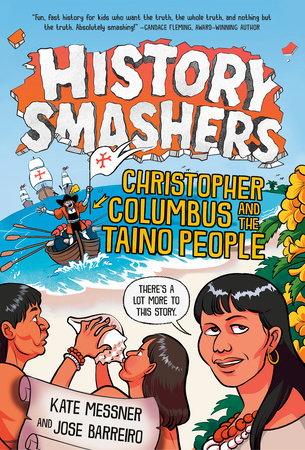
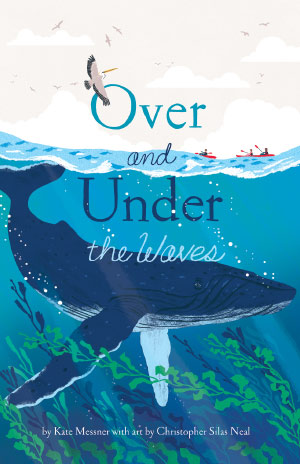
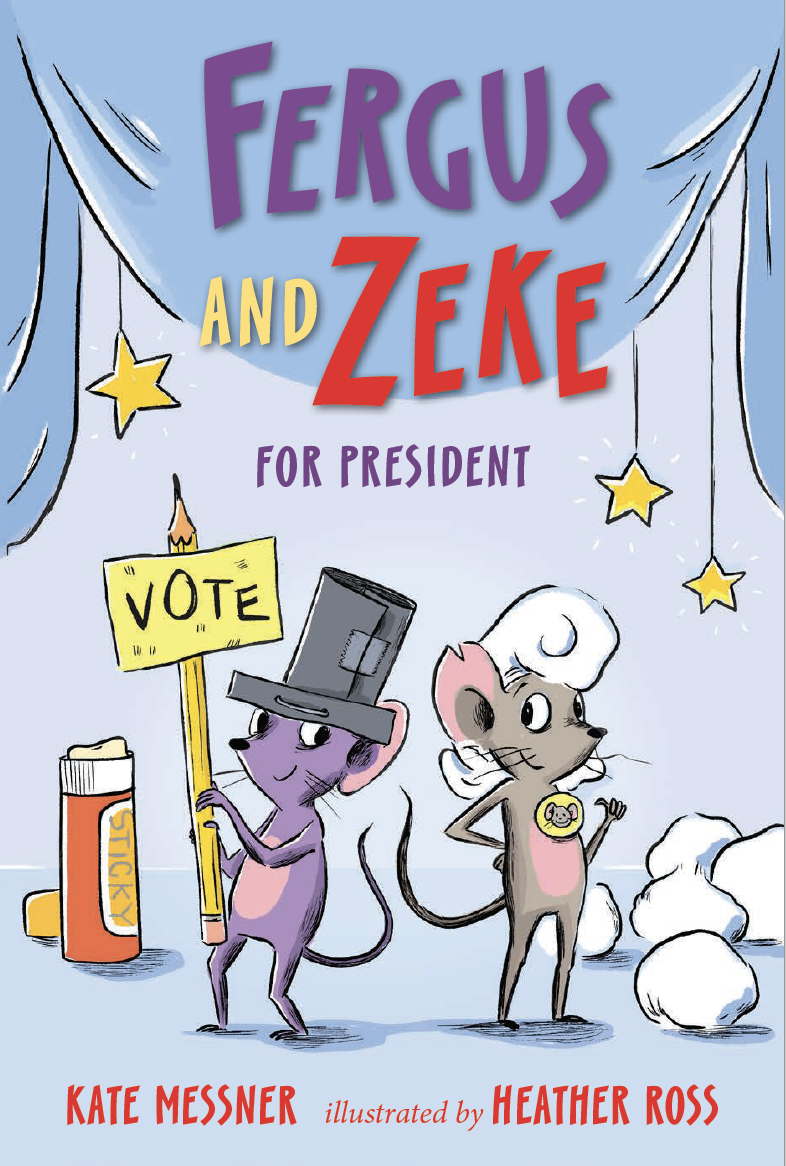
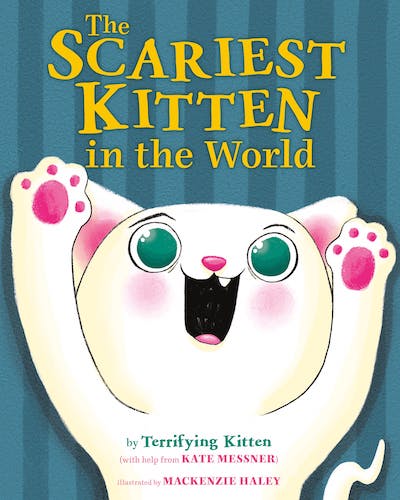
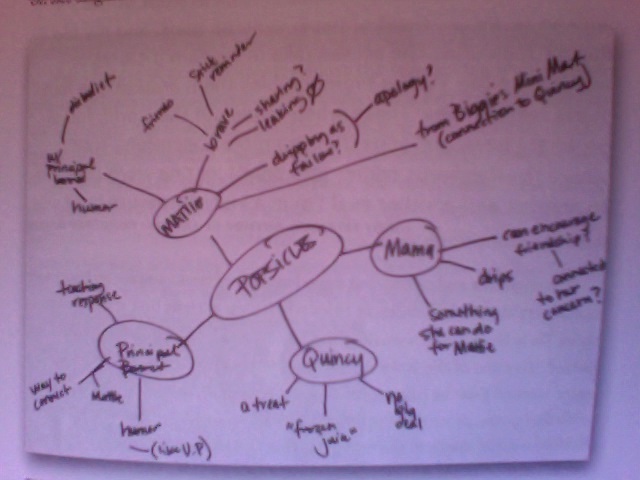
I’m trying this again today with my current work in progress! Hope it proves useful for some of you.
I am actually going to try this tomorrow with Cat & friends from WAKE UP MISSING. I think it may help with some of the characterization issues we were talking about today. Thanks!
Let me know how it goes. Was great seeing you yesterday! I hope I get some time today to try out some of the stuff we talked about.
Linda, this is such a helpful idea. I’m going to try it today. But I also have to tell you how much I love your small and beautiful essay about perfection on your website. It’s a true jewel. http://lindaurbanbooks.com/writing/
Aw shucks. Thanks, Cindy. I hope the exercise is useful for you, too. Right now, when I’m still figuring out the direction of this next novel, the webbing is really helpful for exploring the connections between characters and exploring new paths for them to pursue.
Hi, Linda!
Thanks for the nice mini-lesson. I tried the activity this morning with my WIP. I took the old bicycle that the boy in the story rides to keep up with his incredibly fast running grandma. The bicycle belonged to his father when he was a kid, so it is rickety and old. By doing the activity, I realized that I never really described the bike (outside of being old). Within minutes, I had idea bubbles all around the “bike” bubble with things that I knew about my character, but I also had things that I did not know about my character (and I have known him for a year and a half – always learning new things in revision). I also never made the connection between the boy, the bike, and the father (a connection that needed to be made).
Thanks again! I hope that we can Skype with you again this year. The JDMS sixth graders loved it and they learned so much (probably because they thought, “She is so cool!”).:)
Andy:
I’m so glad this exercise was useful for you! It sounds like you’ve got some real magic going on in this book. Isn’t revision a revelation? The things we missed, the things we’ve yet to discover.
I loved meeting your class. Yes, we must Skype again!
Linda
Linda,
Linda,
I agree with Cynthia. The perfection essay at your website is a must read, and should serve as encouragement for any writer. Also, this exercise is one that I will file away for planning AND revision purposes. Right now I don’t have anything to analyze of my own. However, I just finished reading Kate’s book “The Brilliant Fall of Gianna Z.” (sorry can’t get my device to underline or italicize). Though not an object, the word ‘fall’ plays an amazing role in the story. From the moment I read the title and looked at the cover art, to the very end of the book, I was wondering what type of fall/Fall was going to be referred to next. The search led to a mixture of responses. Throughout the book I held my breath, cried, laughed, and cheered. Indeed, it was brilliant!
I agree about Kate’s brilliance — and about how a word might function in the same way as an object. Anything can serve as the center of that web and offer a unique way to explore the connections, communications, and miscommunications between our characters. Kate does that very well indeed.
Linda, Thanks for your prompt. I also went to the Crooked Perfect post. I loved it! So encouraging and honest. Will you be my friend?
I am writing about a young girl with a chicken for a friend and realized through this exercise that eggs are going to be that object. The exercise helped me to see that and will make me more aware as I craft an imperfect book for an imperfect kid to read.
Oh, I want a chicken for a friend! What a great premise!
I may not be as swell a pal as poultry, but I can always use a new friend. 🙂
Write on, sister!
Linda, I thought A Crooked Kind of Perfect sounded familiar. One of my students bought it for me as a gift from the Book Fair. Now I need to find it and read it. Now that you’re my friend and all.
I hope you enjoy it, Margaret.